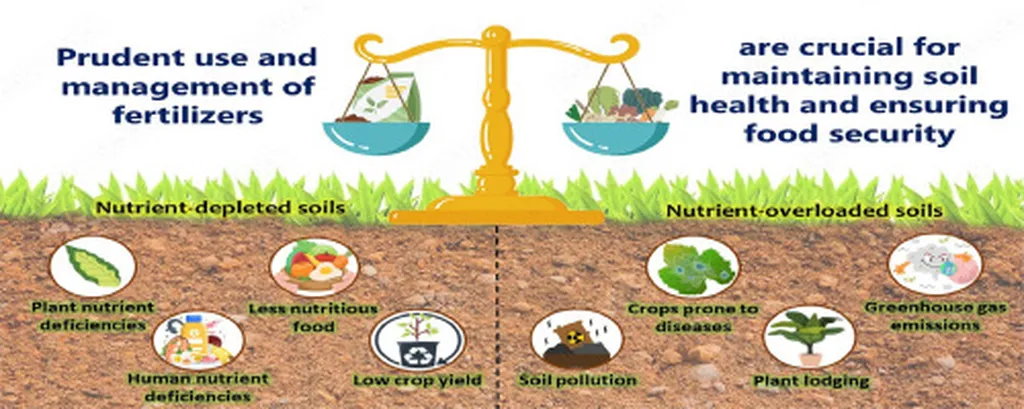In the heart of Pakistan’s Sindh Province, a groundbreaking study is offering new hope for farmers battling the dual demons of soil salinity and sodicity. The research, led by Azhar Ali Laghari from the College of Resources Environment at Shanxi Agricultural University in China, and published in *Frontiers in Plant Science*, reveals that a combination of deep tillage, wheat straw incorporation, and gypsum application can significantly improve soil health in saline-sodic soils.
Soil salinity and sodicity are major constraints to crop production, affecting over 100 countries and millions of hectares of land worldwide. In Pakistan alone, these issues plague vast expanses of agricultural land, threatening food security and farmer livelihoods. The study, conducted in the Khipro area of Sindh’s Sanghar district, offers a promising solution to this pressing problem.
The researchers found that incorporating wheat straw at a rate of 10 Mg ha⁻¹, along with deep tillage and 75% of the gypsum requirement, led to a 35% increase in soil organic matter, a 12–18% increase in water-stable aggregates, a 42% improvement in aggregate stability, and a 31% increase in mean weight diameter. These improvements were most pronounced in the upper 0–15 cm soil layer, which is crucial for plant growth and nutrient uptake.
“These findings demonstrate that integrating straw incorporation with deep tillage and gypsum amendment is an effective management practice to improve soil structure, organic matter content, and biological activity in saline-sodic soils under semi-arid conditions,” said Laghari.
The commercial implications of this research are substantial. By adopting these practices, farmers can enhance soil fertility and structure, leading to improved crop yields and resilience. This is particularly important in regions like Sindh, where agriculture is the backbone of the economy and food security is a critical concern.
Moreover, the study highlights the potential of agricultural waste, such as wheat straw, as a valuable resource for soil amendment. This not only promotes sustainable agriculture but also opens up new avenues for waste management and circular economy practices in the agriculture sector.
The research also underscores the importance of deep tillage in improving soil health. Deep tillage helps break up compacted soil layers, improving water infiltration and root penetration. When combined with straw incorporation and gypsum application, it creates an optimal environment for microbial activity and nutrient cycling.
As the world grapples with the challenges of climate change and food security, innovative solutions like those presented in this study are more important than ever. By harnessing the power of agritech and sustainable practices, we can pave the way for a more resilient and productive agricultural future.
The study’s findings are a beacon of hope for farmers and agronomists alike, offering a practical and effective strategy to combat soil salinity and sodicity. As we look to the future, the integration of these practices into mainstream agriculture could revolutionize the way we manage and utilize our precious soil resources.

